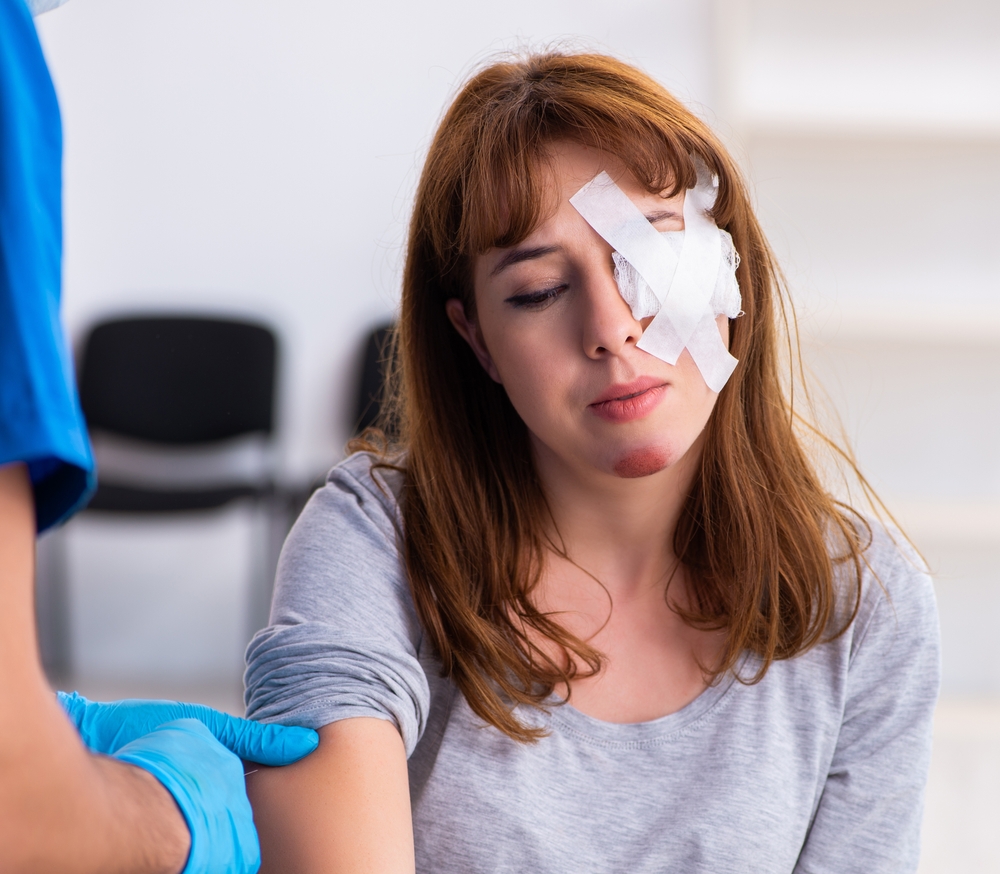
Eye emergencies are unexpected and sudden eye-related conditions require immediate medical attention. These can range from minor irritations to severe, vision-threatening injuries or infections. Understanding the nature and significance of eye emergencies is crucial, as prompt and appropriate action can mean the difference between preserving or losing your vision.
Common Eye Emergencies and Their Symptoms
Foreign Object in the Eye: Symptoms include pain, redness, and a feeling of something stuck in the eye.
Chemical Burns: Symptoms include severe pain, redness, swelling, and blurred vision.
Eye Injuries: Symptoms can include pain, bleeding, swelling, or a visible cut or scratch on the eye.
Sudden Vision Loss: This can be caused by conditions like retinal detachment, optic nerve damage, or a stroke.
Eye Infections: Symptoms include redness, pain, swelling, discharge, and light sensitivity.
Corneal Abrasions: Symptoms include pain, redness, and a feeling of something in the eye.
Recognizing these common eye emergencies and their associated symptoms is crucial in determining the appropriate response and seeking timely medical attention.
The Importance of Knowing How to Respond to Eye Emergencies
Knowing the proper steps to take when responding to an eye emergency can significantly impact the outcome and your long-term eye health. Appropriate actions can help prevent further damage, while the wrong approach can exacerbate the problem or even lead to permanent vision loss.
By understanding the do's and don'ts of eye emergency response, you can feel empowered to take immediate and effective action, potentially saving your vision and avoiding costly or invasive treatments down the line. This knowledge can also help you assist others who may experience an eye emergency, making you a valuable resource in your community.
Do's in Responding to Eye Emergencies
Remain Calm: Take a deep breath and assess the situation before taking action. Staying calm will help you think clearly and respond effectively.
Flush the Eye: If the emergency involves a chemical or foreign object, immediately flush the eye with clean, lukewarm water for at least 15-20 minutes. This can help dilute or remove the irritant.
Cover the Eye: If there is a visible injury or cut, gently cover the eye with a clean, soft cloth or eye patch to protect it until you can seek medical attention.
Seek Medical Care: Regardless of the severity, it is crucial to seek professional medical care from an optometrist or ophthalmologist as soon as possible. They can properly diagnose and treat the issue, preventing further complications.
Provide Relevant Information: When seeking medical care, be prepared to share details about the incident, such as what happened, when it occurred, and any symptoms you're experiencing.
Follow Instructions: Carefully follow any instructions provided by the healthcare professionals, as they will be tailored to your specific condition and needs.
Don'ts in Responding to Eye Emergencies
Don't Rub the Eye: Rubbing the eye can further damage the delicate tissues and potentially push the foreign object deeper into the eye.
Don't Apply Ointments or Medications: Unless specifically instructed by a healthcare professional, do not apply any ointments, medications, or home remedies to the affected eye.
Don't Try to Remove Embedded Objects: If there is a foreign object embedded in the eye, do not attempt to remove it yourself. This can cause further injury and should be left to the professionals.
Don't Delay Seeking Medical Care: Time is of the essence in an eye emergency, so do not wait to seek professional medical attention, even if the symptoms seem mild.
Don't Use Contact Lenses: If you wear contact lenses, remove them immediately and do not attempt to reinsert them until the eye has been properly examined and treated.
Don't Drive Yourself: If you are experiencing an eye emergency, have someone else drive you to the healthcare facility or call for emergency medical assistance.
Why It Is Crucial to See an Optometrist After an Eye Emergency
Seeking prompt medical attention from an optometrist is essential after an eye emergency, even if the symptoms seem minor. These doctors have the specialized knowledge and equipment to properly diagnose and treat eye-related conditions, preventing further complications and potential vision loss.
They can perform an eye examination, assess the extent of the injury or condition, and develop a tailored treatment plan. This may include prescribing medications, providing specialized eye care, or referring you to a specialist for more advanced treatment if necessary.
Ignoring an eye emergency or delaying medical care can lead to serious consequences, such as permanent vision impairment, scarring, or even blindness. By prioritizing a visit to an optometrist after an eye emergency, you can increase the chances of a full and successful recovery, ultimately preserving your vision and eye health.
What You Can Do to Minimize the Risk
While some eye emergencies may be unavoidable, there are several steps you can take to minimize the risk and protect your vision:
Use Protective Eyewear: Wear appropriate safety glasses or goggles when engaging in activities that pose a risk of eye injuries, such as sports, home improvement projects, or working with chemicals.
Maintain Good Hygiene: Practice proper hand washing and avoid touching your eyes with unclean hands to prevent the spread of infections.
Be Cautious with Chemicals: Carefully handle and store household chemicals, and ensure proper ventilation when using them.
Avoid Rubbing Your Eyes: Rubbing your eyes can lead to irritation, abrasions, and the potential introduction of foreign objects.
Schedule Regular Eye Exams: Routine eye exams are essential for detecting and addressing vision problems before they escalate.
By incorporating these preventive measures into your daily routine, you can significantly reduce the likelihood of experiencing an eye emergency and safeguard your vision.
Taking Proactive Steps to Maintain Eye Health
Maintaining vision and eye health is a crucial aspect of overall well-being. By understanding the nature of eye emergencies, recognizing their symptoms, and knowing the appropriate response, you can take proactive steps to protect your vision and minimize the risk of long-term consequences.
In the event of an eye emergency, contact Vision Solutions. Our experienced optometrists can help you maintain clear and healthy eyes. Visit our office in Lamar (417) 682-3301, Nevada (417) 667-2560, or Webb City (417) 250-2828, Missouri. Call to book an appointment today.










